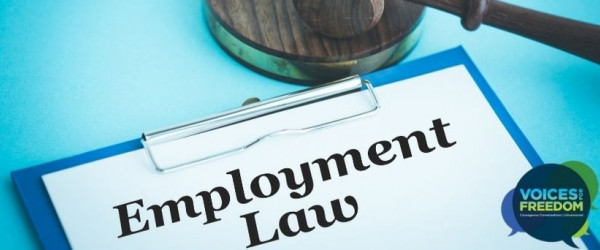
Covid-19 Vaccine And Employment Law | Guest Post
I want to be clear: I will be getting the COVID-19 vaccine.
This post is not about whether people should get the COVID-19 vaccination, and it is not intended to create discussions regarding the legitimacy of the COVID-19 vaccination.
This post is about whether people can be treated adversely in their employment for their refusal to be vaccinated.
These are unprecedented times, and the law is yet to be defined and determined on this matter: however, it is my view that our existing statutory framework already provides us with the answer on this topic.
Vaccination Discussions
With all discussions, discussions around a person’s choice to receive the COVID-19 vaccination are to be held in good faith and in consideration of the principles contained within the Privacy Act 2020. This means that an employer may ask an employee if they have been vaccinated, but an employee is not obligated to answer that question. However, if the employee does not answer the question, the employer is entitled to assume that the employee has not been vaccinated.
If the employee is not vaccinated, and does not currently intend on getting vaccinated, the employee is not required to provide an explanation or reason why. However, if the employee does choose to disclose information, this must be held in confidence and protected in accordance with the privacy principles.
New Zealand Bill of Rights Act 1990** In accordance with section 11 of the New Zealand Bill of Rights Act 1990 every person has the right to refuse to undergo medical treatment. Vaccinations are included under the umbrella of “medical treatment”, and therefore each person is entitled to refuse to be vaccinated.
As an employee, you are required to follow all lawful and reasonable instructions from your employer. However, as discussed above, it is not a lawful instruction to require someone to be vaccinated.
This means that an employer cannot terminate an employee’s employment on the sole basis that they have refused to be vaccinated.
Health and Safety at Work Act 2015
The discussion doesn’t end there. You will have heard the saying: “Freedom of speech doesn’t mean freedom from consequences.” In a similar light, the right to refuse medical treatment does not mean the right not to be treated adversely in your employment.
This is because, under the Health and Safety at Work Act 2015, the employer is required to eliminate risks to health and safety, as far as is reasonably practicable. If those risks cannot be eliminated, the employer must take steps to minimise that risk as far as is reasonably practicable.
This means, if an employer has done a health and safety risk assessment, they may be able to require that a specific role be performed by a vaccinated person. This means that the employer would be entitled to request information about a person’s vaccination status as part of the pre-employment questionnaire.
However, if an employer wishes to ensure that a specific role be performed by a vaccinated person during employment, the employer will be required to undergo an extensive consultation process. The process would essentially be a restructure process: after all, the employer is changing the nature of the role.
The consultation period would include the health and safety risk assessment, and should be conducted in conjunction with the employees, their representatives, and their relevant unions. The main question that will be asked is: Is vaccination necessary to eliminate the risk of COVID-19 in the workplace? This will involve an analysis of:
- The nature of the role itself. Some roles will be inherently more prone to health and safety risks, including roles which are more susceptible of contracting and transmitting COVID-19.
- Whether the risk of COVID-19 can be minimised as far as is reasonably practicable without the vaccine. It is a fact that the COVID-19 vaccine is not 100% effective, which means it is not possible to eliminate the risk of COVID-19 with the vaccine. The employee concerned may want to have discussions about alternative methods: including wearing a mask, wearing gloves or using hand sanitiser, and exercising social distancing and other safe social and hygienic practices.
If it is concluded that vaccination is required, and the employee continues to refuse the vaccine, the employer will be required to consider redeployment opportunities. This means that the employee may have the opportunity to work in a department which does not carry the same health and safety risks; however, this decision will only be made after further consultation with the employee.
It is my view that if termination of employment is the only viable option, that the employee concerned would be made redundant and the redundancy provision in the individual employment agreement would apply. This is a restructure: it involves a change to the requirements of the role.
I do not believe that an employer could refuse to pay redundancy entitlements on the basis that an employee has refused to get the COVID-19 vaccination: that is an employee’s right.
Conclusion
Long story short: an employer cannot terminate an employee’s employment on the sole basis that the employee has refused to be vaccinated against COVID-19. However, the employer could conduct a restructure process which changes the requirements of the role to include vaccination; which could ultimately lead to the employee’s redundancy.
However, the employer is required to undergo a fair and reasonable process which would include a considerable consultation process which would allow the affected employees to provide their feedback on the matter.
To get in touch with Ashleigh, please visit her website. This post has been mirrored from Ashleigh’s blog.
Thanks for reading and sharing! Remember to sign up to our mailing list to keep up with the latest news.
If you value what we are up to at Voices and would like to support our ongoing work you can donate to us and support our nationwide public education campaigns (webinars, flyers, billboards...) and other initiatives to speak up and push back for your freedoms.



